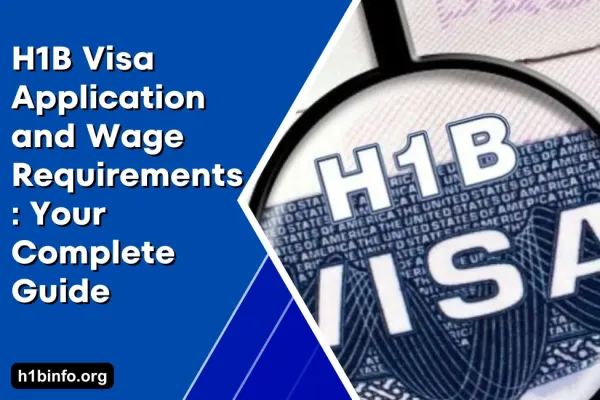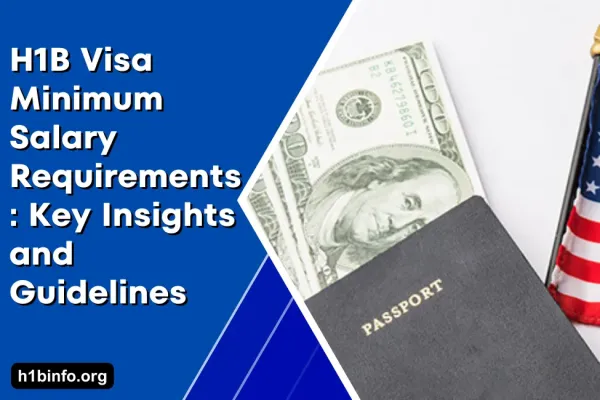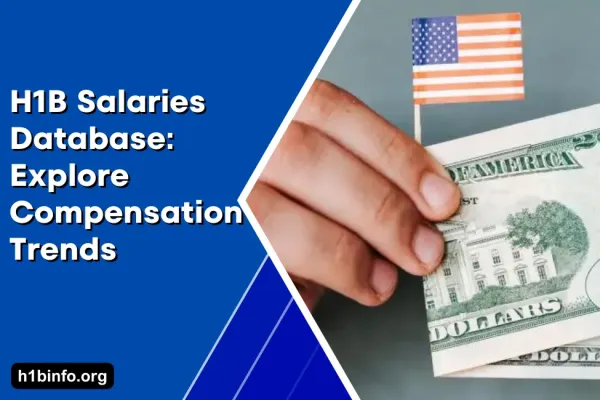The H1B visa serves as a temporary work permit provided to individuals from other countries who aspire to work in the United States. As a non-immigrant visa, the H1B is not intended to be a permanent solution, requiring visa holders to depart from the US upon visa expiration. A crucial aspect that influences an individual's eligibility to work in the United States under the H1B visa program is their salary.
Salary Prospects for H1B Visa Holders
The salary of an individual holding an H1B visa is influenced by various factors, encompassing the nature of their job, their qualifications, the local market conditions for comparable positions, and the prevailing wage rate established by the U.S. Department of Labor. In essence, employers are obliged to compensate H1B visa holders with the higher of two amounts: wage and salary.
Factors That Affect H1B Salary
The job location is one of the most significant factors affecting H1B salaries. H1B wages tend to be higher in urban regions compared to rural areas as a general trend. Urban areas often have a higher cost of living, prompting employers to offer increased salaries to attract employees. Additionally, several other factors influence H1B salaries, which are outlined below.
-
Industry
The specific industry in which an H1B worker is employed plays a crucial role in determining their salary. For instance, individuals working in the technology sector generally receive higher wages than those in other industries.
-
Company Size
The size of the company is another significant factor that impacts H1B salaries. Generally, larger companies offer higher salaries compared to their smaller counterparts. Larger organizations possess greater resources, allowing them to invest more in their employees and offer more competitive compensation packages to attract top talent.
-
Education and Experience
The educational background and level of experience of an H1B worker also significantly influence their salary. Individuals with advanced degrees and extensive experience typically earn higher wages compared to those with less education and experience.
-
Job Title
The job position held by an H1B employee holds substantial influence in determining their salary. Typically, individuals occupying higher-level positions are rewarded with greater compensation compared to those in lower-ranking roles.
-
Negotiation
Furthermore, the art of negotiation can also affect H1B salaries. It is crucial for H1B workers to actively engage in discussions with their employers regarding their remuneration, aiming to secure fair and just compensation for their efforts. This becomes particularly important when considering the salaries of other employees in similar positions, ensuring equitable treatment.
According to the Department of Labor, the prevailing wage rate fluctuates based on:
- Job type
- Geographical location
- Requisite skills for the position
It is periodically updated to align with changes in the labor market.
Furthermore, the salary of an H1B visa holder can be benchmarked against the actual wage paid to other individuals performing comparable work. If the employer remunerates similarly employed workers at a higher rate than the prevailing wage rate, the H1B visa holder must receive the same level of compensation.
H1B Salary Basics
The H1B visa requires employers to pay their foreign workers the "prevailing wage." The prevailing wage is the wage paid to similarly employed workers in the same occupation in the area of intended employment. The Department of Labor (DOL) determines the prevailing wage for each occupation and geographic location in the United States.
Employers are also required to pay H1B workers at least the minimum wage that is set by the state or federal law, whichever is higher. For instance, if the minimum wage in the state of California is $14 per hour, and the federal minimum wage is $7.25 per hour, then the employer must pay the H1B worker at least $14 per hour.
H1B Salary Levels
The DOL has established four levels of wages for each occupation, and employers must pay H1B workers at least the wage that corresponds to their skill level. The four wage levels are as follows:
- Level 1: Entry-level workers who have a basic understanding of the occupation and perform routine tasks.
- Level 2: Workers who have attained some experience in the occupation and perform moderately complex tasks.
- Level 3: Workers who have a wide range of experience in the occupation and perform complex tasks.
- Level 4: Workers who have extensive experience in the occupation and perform highly complex tasks.





